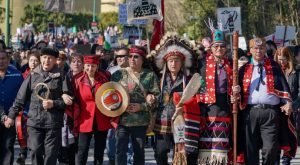Good day, and welcome to my blog of English 372, Canadian Literature. This is my first time running a blog, so I am both nervous and excited to engage in this particular area of learning. I hope that I can meet all of you throughout this course, and I can’t wait to get started!
Who art thou?
Unexpectedly, I am an English Major focusing on language and literature. Currently, in my 3rd year, I hope to pursue education as my post-graduate degree to work in the field of high school education. During my time off-campus, I frequent the nearby park to reflect and relax. I’m also working towards my volunteer hours for my bED application at a nearby high school. Subjects that I enjoy outside of English include philosophy (of morality, meaning, and religion), psychology (neurological processes for communication/consciousness), and geography (mineral deposits and lattice formation).
What do I anticipate learning in this course?
Over the next 13 weeks, I hope to delve into the discourse of First Nations people and develop a critical eye for the historical progress of Canadian canon. As the course has laid out, I anticipate opportunities to gain an understanding of connections between colonialism and literature, recognizing text for their significance beyond the scope of Western thinking, and I hope to explore new ways to improve the future of literature in Canada. For instance, such misconceptions or lack of understanding of literature, limited to the scope of western culture, have led to the alienation of the Turtle Island people. In this read, I found the myths of the First Nations people questionable at first, but further reading and rereading have opened my mind to just a little bit of what their culture is and how the predominant western culture masked it.
Why am I interested in this course subject matter?
The focus of my future involves the education of the younger generation. As such, I find it pertinent to my endeavor to familiarize myself with Canadian literature. However, the scope of the course offers so much more, which I find more valuable than merely the history or significance of Canadian literature. More recently, I have noticed that students have become desensitized towards First Nations, in both culture and the strife that they went through (and continue to go through). Instances such as the case with the missing First Nations women and girls, which was a semi-recent issue, were unknown to them, and I felt deeply bothered that such media isn’t prevalent in both popular literature and social media stories. Being able to connect, identify, and decolonize Canadian literature is an asset that I wish to pass down to my students in the future.
Thank you for reading my first blog post! I hope that I will get the opportunity to connect with many of you.

Works Cited
Brant, Jennifer. “Missing and Murdered Indigenous Women and Girls in Canada | The Canadian Encyclopedia.” Thecanadianencyclopedia.Ca, 22 Mar. 2017, thecanadianencyclopedia.ca/en/article/missing-and-murdered-indigenous-women-and-girls-in-canada. Accessed 8 Jan. 2020.
Didlick, Nick. Indigenous Leaders and Environmentalists March in Protest against Morgan’s Trans Mountain Pipeline in Southern British Columbia, 10 Mar. 2018, www.macleans.ca/news/canada/trans-mountain-politics-and-first-nations/. Accessed 8 Jan. 2020.
Mclaren, David. Encountering the Other: Racism Against Aboriginal People Chippewas of Nawash Unceded First Nation Report to the Ipperwash Inquiry. 26 Feb. 2007.